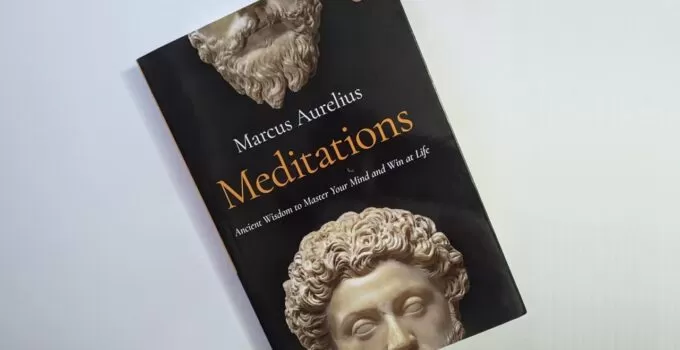Category: Stoic Philosophy
Never again get fooled by these fake Marcus Aurelius quotes. They are words of wisdom, but falsely attributed to The Philosopher King.
The contrast between narcissists and Stoics is not just in their actions, but also in their basic outlooks on life. Find out what separated them.
Explore the Stoic art of true happiness with Seneca. Adopt his ideas on happiness, rooted in virtues, mindfulness, and resilience.
Discover the Stoic blueprint for a fulfilling life. Learn the timeless virtues of wisdom, courage, justice, and temperance to live a life of deep satisfaction and purpose.
Explore the intriguing connection between Halloween and the Stoic practice of Memento Mori. Uncover how both traditions remind us of life's impermanence and inspire us to live fully.
Memento mori bracelets serve as a reminder of our own mortality, encouraging us to live life to the fullest and cherish every moment.
Find balance in your life from two potent Stoic concepts: Amor Fati and Memento Mori. Embracing these, you can learn to live more joyfully and uncomplainingly.
Looking for some books on Stoicism? Check out this guide to the best Stoicism books to explore the ancient philosophy of Stoicism and apply it to modern life.
Narcissists are difficult people with inflated egos. Stoics are calm people with practical self-sense. How do Stoics deal with narcissists and selfish people?
This one quote, “Death smiles at us all. All a man can do is smile back,” misattributed to Marcus Aurelius, can teach you five powerful lessons from Stoicism.
Love and loss are universal human experiences. How do Stoics deal with grief and loss? What can we learn from their wisdom and practices?
Explore the life and teachings of Musonius Rufus, the renowned Stoic philosopher of ancient Rome. Delve into his practical approach to philosophy and learn how his beliefs influenced the …
The philosophical wisdom of Roman Emperor Marcus Aurelius reveals through his top ten quotes — which are timeless insights on life's troubles, resilience, and growth.
Discover ancient wisdom & practical advice from Marcus Aurelius on happiness. Use his Stoic philosophy to thrive & have a rewarding life in the modern world.
The Serenity Prayer is a well-known ritual practiced by people from various faiths. Is there a non-religious, atheist version of it?















